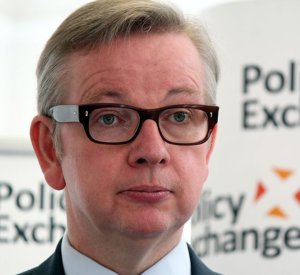
I’m offering a wide range of organisations the opportunity to publish their answers here on this blog. I wonder whether anyone will take up the offer – they should, in order to stimulate a public debate. The RSPB has already published its views.
Here are some initial thoughts from me:
- site protection: maintain the existing protections afforded by the Birds and Habitats Directives, complete viable network of marine protected areas in all UK waters and upgrade 20,000ha of local wildlife sites in England (approx half of total area) to SSSI status thus increasing SSSI area to approx 800,000ha.
- species protection: maintain current levels of species protection as set out in Wildlife and Countryside Act etc, Birds and Habitats Directives. There may be a need for some rationalising of these species lists and that should be done under a modified version of the Red Tape Challenge (to be known as the Green Ribbon Challenge) where any species which is proposed for lower protection must be accompanied by two named species which should be given enhanced protection.
- climate change: meet the challenges of the Climate Change Act and the Paris agreement.
- resource use: nationalise the UK fishing fleet and then control fishing effort so that catches increase in the long term thanks to restraint in the short term.
- invest in ecosystem services: transfer existing CAP funding to producing better water quality, lowering flood risk, greater soil health and more biodiversity.
- structural changes: make agriculture a BIS responsibility and make consumers and taxpayers Defra’s main concern, merge some functions of NE and FC so that we have a Forest and Wildlife Agency which delivers biodiversity and public recreation on public land.
- rewilding: let’s have some large new national parks based on rewilding (Salisbury Plain, Somerset Levels and The Fens for a start?)
- funding: invest in public ownership of biodiversity-rich land and use public funds to deliver the recommendations of the Lawton report as a public benefit infrastructure project (c£1bn, cf £52+bn for HS2).
[registration_form]
Under rewilding: more holes in the ground for stuff to build eco-towns/villages with.
The RSPB has given us the excellent the Hope Farm experiment. So why not have wildlife NGO’s getting together to sponsor some ‘hope hamlet’ projects? If they were mostly affordable accommodation (morally they should be), it would set a great example and lead the way to a slightly less ‘them and us’ society. And another thing, it would get the RSPB etc noticed big time.
People need wildlife around them. Nature and housing can and must co-exist.
Murray – like that idea a lot, its not one I’d heard before.
Kevin McCloud might be a good partner; he was working on a very sociologically and ecologically sound housing project in Swindon a while back – I don’t know if it came to fruition, I think the banking crash did for it in the end, but his ideas were excellent.
Jbc – thanks for the name, Kevin McCloud. Just looked him up. Biggest problem is the starting point: It appears to be predominantly, or wholly, for private ownership. So by definition it’s unaffordable to the vast majority.
http://www.telegraph.co.uk/news/earth/environment/conservation/11773530/Grand-Designs-presenter-Kevin-McClouds-eco-development-riddled-with-building-errors.html
But skimming this second article I warm to him quite a lot:
http://www.telegraph.co.uk/finance/property/11705230/Kevin-McCloud-What-Id-do-about-our-terrible-houses.html
Funding: tax incentives for community ownership of such land. Or, more ambitiously, for eg crowd-funded not-for-profit ownership compliant with defined public-interest benefits.
Yes and yes.
Chairing a small charity and nature reserve I’d like local councils to held accountable for failure to prosecute the ‘small stuff’ like littering, enforcing the dog fouling act and perhaps the most negative impact of all enforcing dogs on leads where a nature reserve says so. Small stuff I know, but across a nation, big and positive impact for wildlife.
I’d also like to see Mink eradicated UK wide, many of our aquatic species like Kingfisher, Coot Great Crested & Little Grebe, Moorhen, Gadwall, Tufted Duck, Common Tern, Oystercatcher, Black-headed Gull are annually slaughtered en mass by Mink who always ‘re-appear’ at this time of year.
One pedantic point. There is already over 1 million hectares of SSSI in England, so the local wildlife sites would bump it up to 1.2 million.